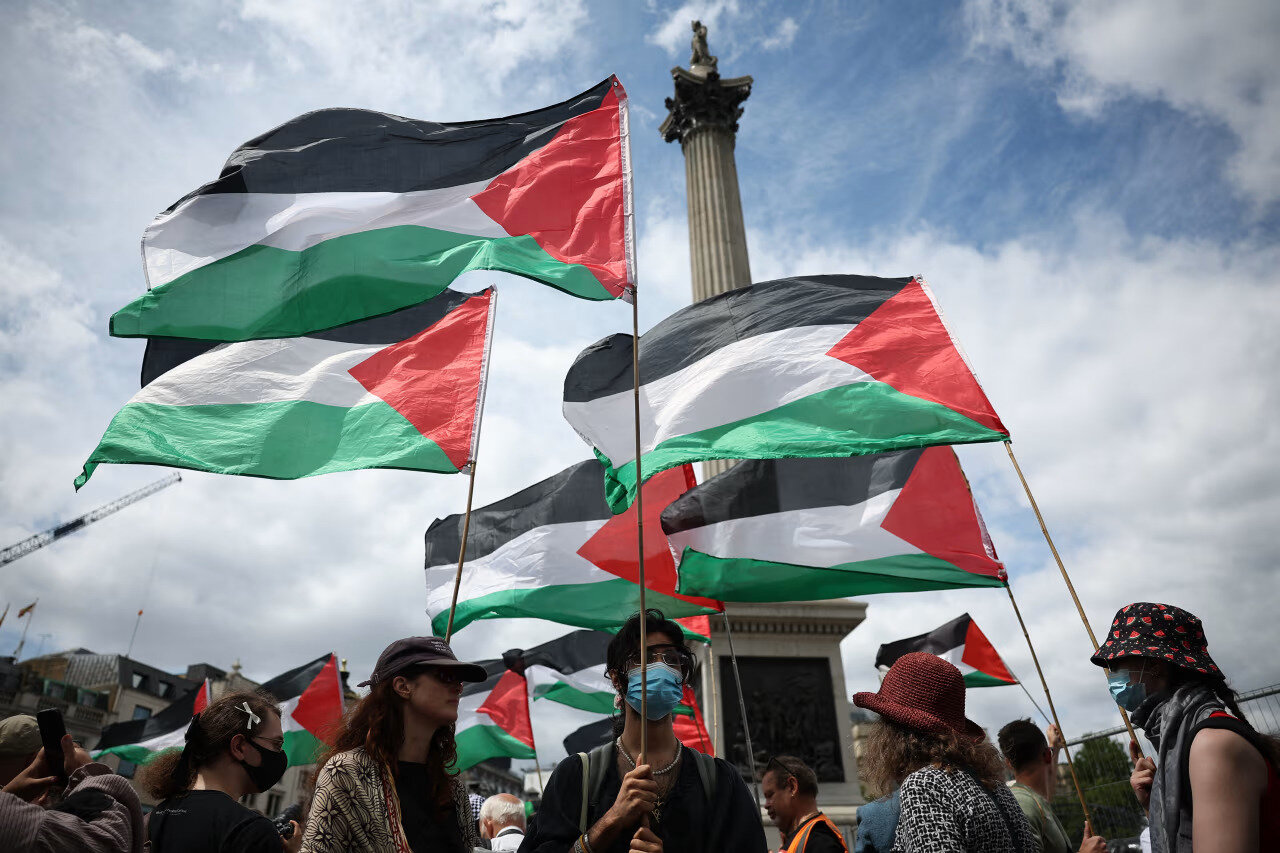Wave of Palestine recognition: A symbolic rupture wrapped in political interest

TEHRAN – Paris formally recognized the State of Palestine on Monday, a move unveiled in the context of the Franco-Saudi summit on the margins of the United Nations General Assembly, and immediately folded into a wave of declarations from the United Kingdom, Canada, Australia, and Portugal.
The gesture is widely seen as historic: it signals a rupture in what had been a relatively disciplined Western consensus and marks a diplomatic shift toward condemning the trajectory of Israel’s occupation and settlement expansion. Yet the symbolism is inseparable from self-interest, and for many observers the decision reads less as a rescue of the two-state idea than as a calculated realignment of domestic and geopolitical priorities.
France’s recognition lands in a moment of contradiction. Western capitals invoke moral duty even as they hedge with conditions and caveats. Paris itself initially attached demands—hostage releases, Hamas disarmament, Palestinian institutional reform—only later to decouple recognition from these prerequisites.
The inversion is revealing: recognition becomes not a lever for change but an end in itself, a carefully staged gesture designed to reshape the diplomatic narrative while leaving the hard instruments of policy untouched.
That posture explains why critics describe the wave as “too little, too late.” On the ground, nothing has shifted: Israeli settlement plans continue to gnaw at West Bank contiguity, the E1 corridor threatens to bisect potential Palestinian territory, and Gaza faces what numerous UN bodies and rights groups describe as genocide — a blockade-driven famine, collapsing services, mass displacement, and relentless bombardment compounded by the obstruction of aid. Recognition on paper cannot redraw borders, dismantle settlements, or deliver humanitarian relief.
The United States, meanwhile, finds itself in conspicuous isolation. With France, the UK, and others crossing the line, Washington now stands as the lone permanent member of the UN Security Council refusing to recognize Palestinian sovereignty.
That isolation is not merely symbolic: U.S. veto power still blocks full UN membership for Palestine, meaning that declarations of recognition, however numerous, do not translate into institutional rights or enforceable protections. The White House’s dismissal of allied moves as “performative” underscores the widening divide between a U.S. still committed to bilateral bargaining and European and Arab powers embracing a symbolic rupture.
If these gestures carry the language of moral duty, they are also wrapped in political self-interest. France’s Macron is attempting to navigate a volatile domestic landscape: mass pro-Palestine demonstrations, the presence of Europe’s largest Muslim community, and the electoral pressures emanating from both left and right.
Jean-Luc Mélenchon and other left figures have turned Palestine into a galvanizing cause; Marine Le Pen, by contrast, denounced the move as recognizing “Hamasstan,” using the term to equate Palestinian statehood with Hamas and to appeal to conservative voters through security fears.
Elsewhere, similar calculations are evident. In London, Keir Starmer sought to contain Labour’s internal fractures and respond to public outrage. In Ottawa and Canberra, leaders moved amid domestic protests and fears of reputational damage abroad. Recognition, in each case, answered political demand at home as much as it reconfigured diplomatic positions abroad.
The cynical logic is hard to miss: recognition buys leaders short-term domestic relief, regional goodwill, and the aura of principled action without requiring the painful trade-offs that genuine leverage would entail—arms embargoes, sanctions on settlement enterprises, or a readiness to withhold intelligence cooperation.
Arab and Palestinian leaders may claim a symbolic victory, and governments may point to a new consensus, but the structural realities of occupation remain untouched. Sovereignty, borders, governance, and security are still contested and largely unchanged.
History will determine whether this wave of recognitions was a pivot toward accountability or merely a public relations correction.
For now, it functions both as a rebuke to Israeli policies and as a mirror of Western ambivalence: a symbolic rupture wrapped in political self-interest.
Unless recognition is followed by enforceable measures that alter facts on the ground, it risks being remembered not as a turning point but as another performance in a long cycle of gestures, leaving Palestinians still without the basic elements of statehood.
Leave a Comment